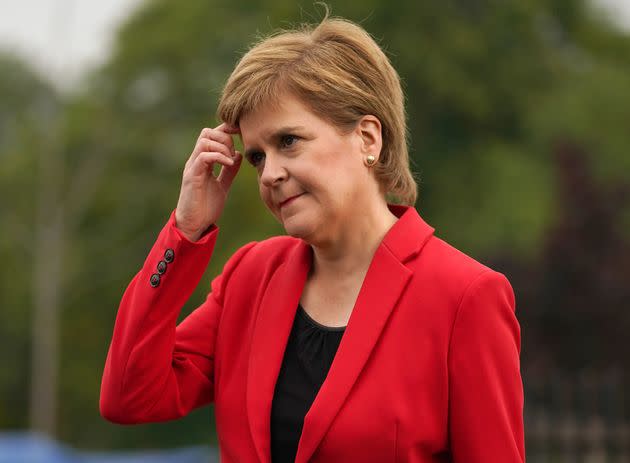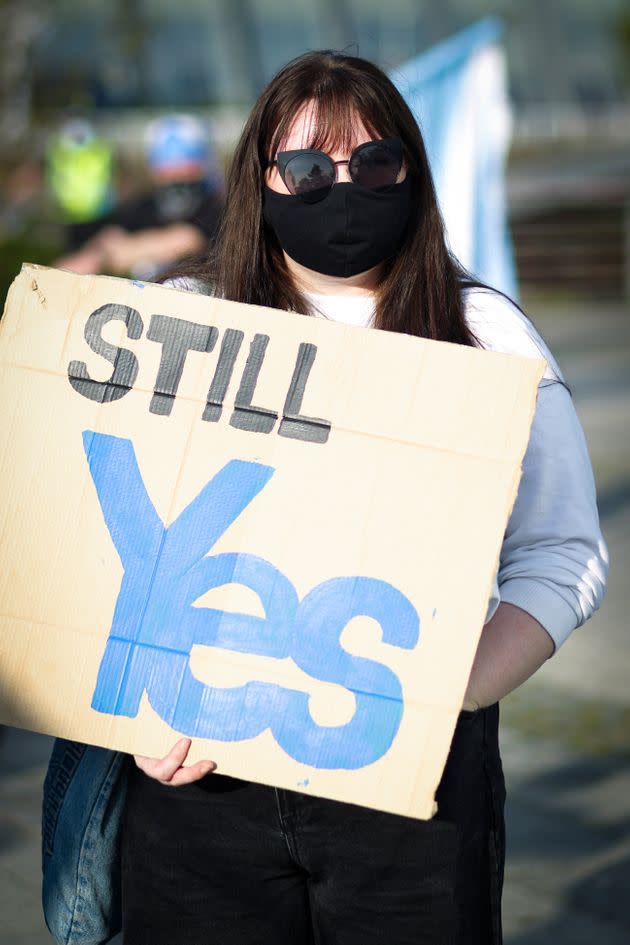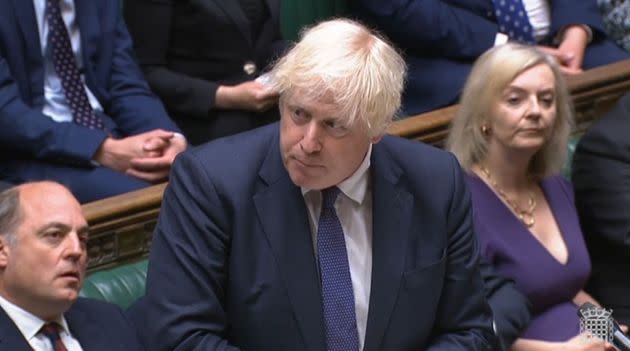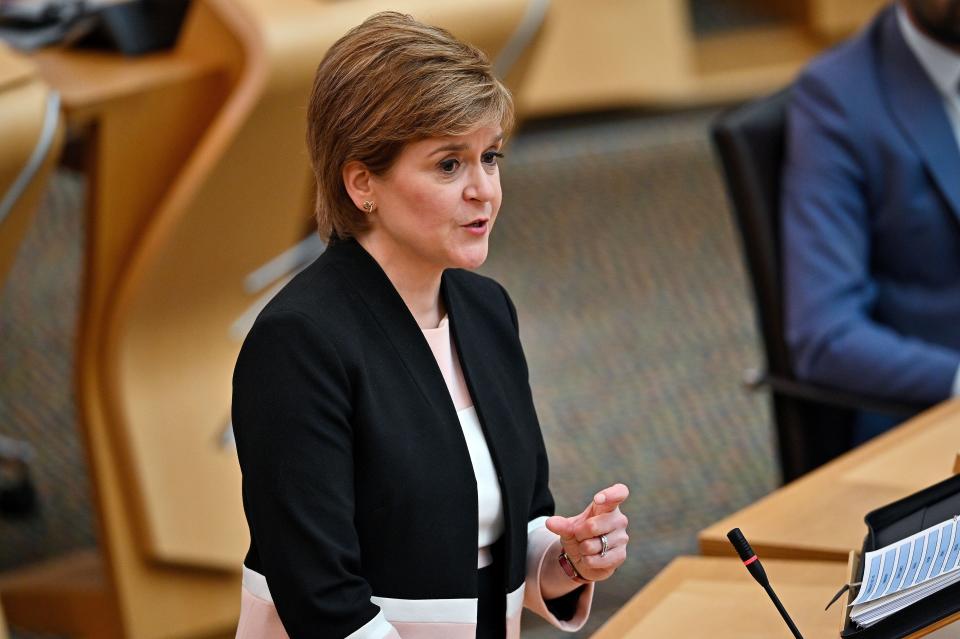What Nicola Sturgeon's Promise To Hold A Second Independence Referendum Means

Nicola Sturgeon announced on Tuesday she will be holding a second independence referendum by the end of 2023.
This has been a controversial issue between Holyrood and Downing Street in recent years considering Scotland held an independent referendum back in 2014.
The ‘No’ campaign narrowly won – but now the arguments for ‘Yes’ have been revived, and could lead to the Scottish people hitting the ballot box in the next two years for a second referendum, IndyRef2.
Why is this significant?
As Scotland’s first minister, Sturgeon leads the devolved government, but still has to answer to Downing Street on certain matters – including constitutional issues.
Prime minister Boris Johnson and his cabinet have sternly rejected all of Sturgeon’s calls to hold another public vote on splitting from the Union so far.
Johnson said it would be “irresponsible and reckless” to hold another vote less than a decade after the first one – especially as Sturgeon’s party, the Scottish National Party, promised it would be a “once-in-a-generation” opportunity.
For Sturgeon to announce a definite deadline on another referendum is therefore a definitive moment for Scotland, and shows she is still not backing down after Johnson’s refusal. The first minister initially promised she would make Scottish independence a priority once the pandemic has subsided.

Why has the independence movement gained traction again?
In 2014, 44.7% of Scottish voters supported leaving the Union, while 55.3% backed staying with England, Wales and Northern Ireland.
While nationalists stepped back from the arguments for a short time, the EU referendum of 2016 saw almost two-thirds of Scottish votes support remaining in the bloc. When the entire UK was taken out of the EU, the SNP revived the arguments for independence, claiming Scotland had been removed from the bloc “against our will”.
Rejoining the EU has now become part of the vision for an independent Scotland.
Holyrood has also strayed from Westminster’s leadership throughout the pandemic, as Sturgeon and Johnson butted heads over Downing Street’s handling of the crisis.
As of August 5, 48.8% of Scottish people support leaving the Union while 51.8% backed staying, according to Redfield & Wilton’s survey – showing a small nudge towards independence.
WATCH 📺 Nicola Sturgeon tells MSPs that the Scottish Government plans to hold an independence referendum 'before the end of 2023' 🏴 pic.twitter.com/79Zh13BPZK
— The National (@ScotNational) September 7, 2021
What happens if the PM does not give his approval?
Sturgeon could end up hosting a referendum without Downing Street’s permission.
Sturgeon has the support in Holyrood, as the Scottish parliamentary elections in May this year saw the SNP fall just one seat short of a majority. The party now has the backing of the eight Scottish Greens too, after signing a historic cooperative agreement in August.
As the SNP website claims, this means Sturgeon has “a cast-iron mandate for giving the people of Scotland the choice of independence, on a massive 71-57 majority”.
However, without Downing Street’s permission, the referendum would have no legal weight regardless of the outcome. The Supreme Court would find that the referendum falls outside of devolved governments’ jurisdiction.
In May, an Ipsos Mori poll also found that if Westminster were to reject a second referendum, 41% of participants said the Scottish government should accept another referendum cannot be held for the next five years.
A further 32% said Holyrood should take the UK government to court in an attempt to establish a legal basis for a referendum. Just 16% said Scotland should hold the referendum without Downing Street’s consent.

Might the PM relent and allow IndyRef2 to go ahead?
Even if Johnson stands by Unionists and prevents such a referendum going ahead, he could face questions about the legitimacy of the Union itself by preventing the referendum from going ahead.
Sturgeon said in April: “If people in Scotland vote for a party saying, ‘when the time is right, there should be an independence referendum’, you cannot stand in the way of that, and I don’t think that is what will happen.”
However, public opinion is evidently divided in Scotland on independence, buying Downing Street some time to respond to Sturgeon’s demands.
Johnson suggested in January that there should be a 40-year gap between the first referendum and the second, echoing the time period between the 1975 vote on membership in the European Union and the 2016 referendum.
This article originally appeared on HuffPost UK and has been updated.
Related...
4 Warning Signs The Government Is Not Yet Prepared To Take Afghan Refugees
Nicola Sturgeon Scraps Almost All Covid Curbs In Scotland - But Face Masks Remain

 Yahoo News
Yahoo News 

